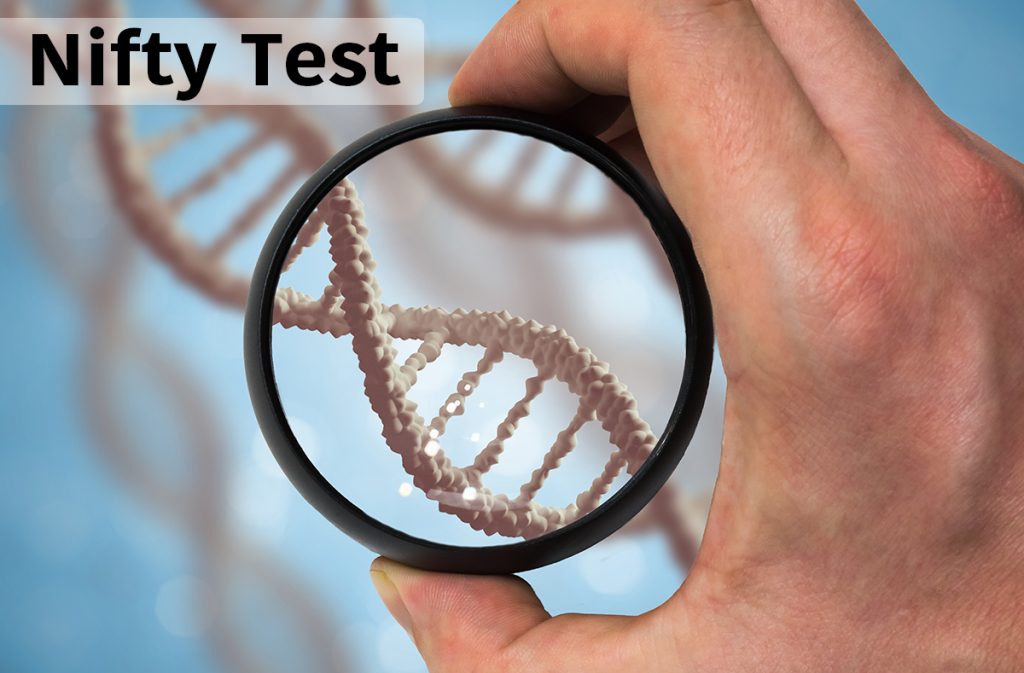The question most parents want to know is about the health of the fetus, such as the baby is growing well? Are organs complete? And without genetic disease?
Currently, with the advances in technology, parents can monitor the growth of the fetus before birth. Nifty Test (Non-Invasive Fetal Trisomy Test) is the evolution of modern examination that gives accurate results. Now, we came to know the Nifty Test
What is Nifty Test?
Nifty Test is the diagnosis of fetal chromosomal abnormality by no need to punch the amniotic sac.Just use 10 ml. from the blood of pregnant women, that can check the genetic characteristics of the fetal. By you can get this test when you have a gestational age of 10 weeks or more. The test will be based on the analysis of the sequence of genetic material to determine the excess of the double chromosome 21 at 18 and 13, and also can detect other abnormalities as well, such as chromosomal abnormalities.
What kind of genetic disorders can be diagnosed by Nifty Test?
Nifty Test will focus on the disorder that can be found frequently, that is the chromosome exceeds 1 bar. Such as the Down’s syndrome – the chromosomes 13 exceed 1 bar, the Edward’s Syndrome – Chromosome 18 exceeds 1 bar, and the Patau’s syndrome – the chromosome 13 exceed 1 bar. In addition, it also can detect other abnormalities as well, such as chromosomal abnormalities or examination to see the sex of the fetus.
What is the principle of Nifty Test?
When you get pregnant for about 8 weeks, the fetus will develop a complete organ and on week 10 or about the 2nd months, the baby’s internal organs are increasing and the fetus is getting nutrients and driving waste through the placenta that connects with the mother.
The mother and baby’s blood does not exchange nutrients directly but there is a thin membrane that serves to prevent the baby’s and mother’s cell from meeting and against each other. Because the cells in the mother’s immune system will detect that the baby’s cells are foreign.
Just keep the blood from the pregnant women with gestational age of 10 weeks or more, It can detect genetic diseases from the baby’s DNA without needing to pierce the amniotic sac, which is more risky and painful.
Is Nifty Test more accurate than amniocentesis?
Clinical Research Information – By testing in 112,000 pregnant women volunteers found Nifty Test examination has the speed to detect the disease up to 99% when compared with the method of punching the amniotic sac, that has a fast detection rate of only 60%. It also found that the error rate was reduced to 0.1% when compared with the method of punching the amniotic sac error is as high as 5%. Currently, more than 400,000 pregnant women around the world choose to use Nifty Test to detect genetic disorders of the fetus.
What kind of pregnant woman who should use the Nifty Test
The following information may help mothers decide whether they should be screened in this way.
- Pregnant women over 35 years old. If the doctor detects abnormalities of the baby with an ultrasound, you need to confirm your baby’s genetic abnormalities in another way.
- Pregnant women with risky conditions that do not recommend for amniocentesis. , such as there is a risk of miscarriage, Placenta previa. The baby’s placenta is located in the lower part of the uterus close to the cervix. Or you are infected with the hepatitis B or C virus (HBV, HCV infection)
- Pregnant women who have a history of Trisomy-type abnormalities from a previous pregnancy.
- Has ever been treated for infertility by the way, vitro children (IVF), have the recurrent pregnancy loss or have family history or relatives who are sick with genetic abnormalities.
How to prepare before going to the Nifty Test and Where to get?
The Nifty Test like a general health check. Not necessary to ‘Nothing per Mouth’. The doctor will ask the history and let you sign the inspection document, then drill your blood 10 ml (about 3 tablespoons) and send it to the laboratory. After that, the doctor will arrange for you to listen to the results and give an advice. Medical institutions that provide screening services are either government or private if you are interested in finding out directly from the hospital or invitations during the antenatal procedure.
Information from: Prof. Dr. Kanis Sangiamsunthorn

